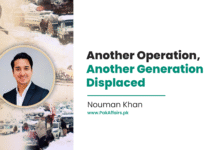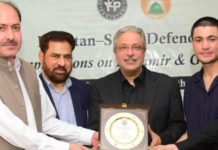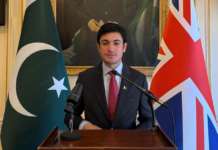COVID-19 emerged as one of drastic pandemics in human history. It was first reported in December 2019 in the Wuhan city China, and soon after, the virus got spread to entire world. Coronavirus has affected millions of people, who either got sick or died due to the spread of this disease.
With the passage of time, multiple variants of Covid-19 have emerged and are mutating continually. The world has experienced multiple waves and thus, it did not come to an end yet even after 2 years of spread.
People are required on following extensive precautions such as hygiene protocol, social distancing, wearing of masks, and getting vaccinated etc. Along with direct impact of COVID-19 on physical health, the pandemic has given rise to indirect sufferers in the form of mental health.
It is widely noticed that the pandemic has promptly affected our day-to-day life, businesses, disrupted the world trade and caused movement restrictions.
Multiple sectors are affected by the COVID-19 outbreak, leading to business closure or reduced productivity; these sectors include but are not limited to sports, Information and electronics industry, pharmaceuticals industry, and tourism. The situation has not only resulted into financial loss and unemployment on massive scale but vis-a-vis has given rise to mental health issues.
Due to the spread of virus, Countries banned gatherings of people to prevent the spread and break the exponential curve. Many countries locked their population and enforced strict quarantine to control the spread of the chaos of this highly infectious disease. At the peak of the COVID lockdown, more than 160 countries had mandated some form of school closures for at least 1.5 billion children and youth. Which affected not just their education but also their physical activities.
In addition, COVID-19 has disrupted social fabric across the world. People interact with each other more frequently on online means than in physical. For a country like Pakistan where people are knitted closely, the movement restrictions and lockdown situations have cause mental health issues including fear, loneliness, panic and aggression.
Moreover, many people have lost their jobs and are facing hardships. In a country like Pakistan, where mental health is not given due attention, it is imperative now that along with vaccination drive, serious efforts be made to tackle the escalating issue of mental health.
The fear of COVID-19 and resultant impact, the ratio of people to committing suicide or indulged into domestic violence has increased. The similar situation is observed in Pakistan where 23 of the suicide cases are reported to be linked with COVID-19 (Mamun & Griffiths, 2020).
If not tackled meticulously, it is expected mental health crises in Pakistan would become serious in coming years. The situation will not improve on its own and therefor, government along with private sector need to undertake certain interventions where people are not just given awareness but be provided with mental health counselling.
It is encouraging to see that some of the organizations have already realized the hazards of COVID led mental health issues and have started campaigns to cope the risks. A similar campaign is initiated by a consortium comprising CESVI, Concern Worldwide, HELVETAS Swiss Inter-cooperation, ACTED, Welthungerhilfe, International Medical Corps, and Medecins du Monde, launched a Risk Communication and Community Engagement project “Improving National Capacity to Respond to COVID-19 Pandemic in 24 Districts of Pakistan”.
The aim of the intervention is to support Government of Pakistan in tackling health crisis by inculcating behavior change through 360 degree media campaign. The two main themes of the campaign are: a. Preventive Measures of COVID 19, and b. Mental Health & Psychosocial support during the pandemic.
Keeping in mind the behavioral aspect, a campaign ‘’Ehtiyat Wahid Nijaat’’ is launched under the same initiative to sensitize masses about the importance of consultation with experts about mental health.
The campaign will employ various communication and awareness vehicles such as Radio and TV programs in national and regional languages to maximize the reach and understanding at grassroots level and rural communities.
Apart from media component, the campaign also includes “Khayal” helpline which will provide access to psychological experts across the country free of cost.
Furthermore, the standees comprising of COVID-19 prevention messaging and highlighting mental health issues are placed at public interaction places e.g. bus terminals, railway stations, malls, government offices and other high visibility areas to ensure that message reaches out to maximum population across the country.
The fact that many private organizations and individuals have come forwards realizing the sensitivity of the issue and have taken certain initiatives to correct the worsening situation resulted by pandemic is quite promising. Mentally stressed people are wondering around us, with a small attention we may find them within our social circle. Now is the time that along with initiatives such as “Ehtiyaat Wahid Nijat”, people at individual capacity also start playing their part by providing guidance, assistance and counselling to those who are in need.




